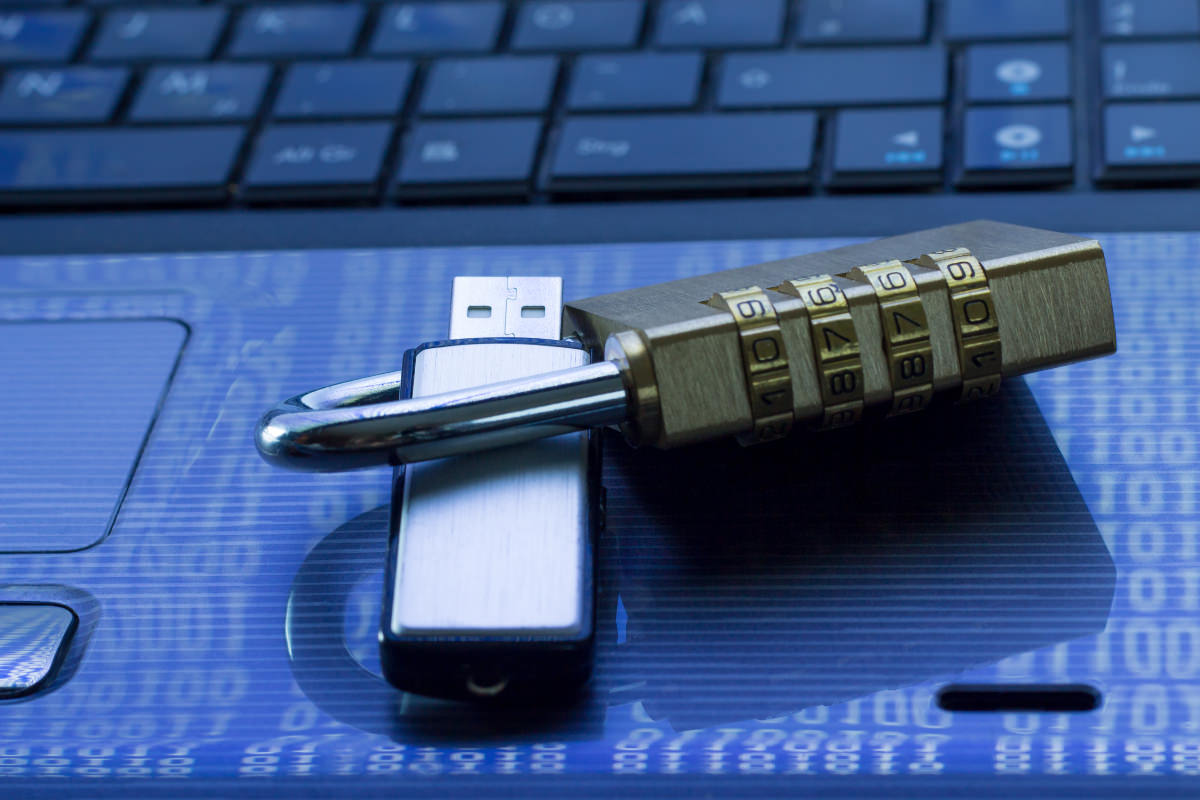
Online and cyber security are absolutely crucial nowadays, especially considering just how much personal and professional data people choose to share online through social networks. You may think that only certain people can see your data and that your devices are protected through firewalls and anti-virus software . Still, these could be virtually useless defences against a very determined hacker. Luckily, you can take plenty of extra steps to protect your sensitive or valuable data. One of the simplest, and also one of the most affordable methods, are encryption devices.
How Encryption Devices work
Encryption helps you to store and transmit data securely so that only the intended recipient can access it. If it falls into the wrong hands, the encrypted data will be useless. Encryption is like sending your data in code, and unless a recipient has the decryption information (just like a cypher if you're a fan of your spy novels), they cannot view, listen or read the data and have it make any sense at all.
For a practical example of how encryption devices can protect data, lets look at a specific product, the DatAshur Encrypted Flash USB Stick. This storage device automatically encrypts data as soon as it is transferred to the device, using a hardware encryption engine built into the device. It requires a PIN in order to unlock the documents and files stored on it, but unlike ordinary PIN-accessible systems, this device will automatically delete the encryption key if someone enters the wrong PIN 10 times in a row. Again, just like a spy story, this is essentially an auto-destruct feature in order to preserve the security of the USBs contents.
It cannot be hacked either, as the PIN must be entered using an onboard keypad, not an external keyboard. It is resistant to tampering in virtually every way, being both waterproof and having a strong casing that protects it from any physical damage or tampering. Ultimately, what this means is that once transferred to the device, your data will be completely secure and inaccessible to anyone who does not know the PIN. Just as long as you dont make your PIN really easy to guess! (hint: dont choose your birthday)
3 situations when an Encrypted Device is essential
MI5 does not just use encryption devices they have a lot of uses in everyday life by everyone from civil servants to high-flying business executives. In fact, anyone who owns a smartphone and wants to keep it secure, just in case someone may be listening in or trying to steal data, will also find encryption devices useful. Here are just 3 examples of the many situations in which these handy pieces of tech can be invaluable in everyday life:
If you think you're being spied on
If you think someone may be listening to your calls or trying to look at private emails and data, you may not necessarily be being paranoid. Many people report being spied on by their exes, particularly during messy divorce proceedings. In contrast, many others are uncomfortable with the idea of authorities and security services monitoring ordinary citizens' communications. Using encryption devices may do nothing but give you peace of mind that you've put up one more wall to prevent this from happening.
However, there is much to be said for this kind of reassurance, especially for businesses with a lot at stake and plenty of money on the line.
Transporting sensitive business information
If you need to travel to a business meeting and take the data with you, you cant risk it being lost or falling into the wrong hands during the journey. An encryption device is like a portable, secure safe for your data, allowing you to either deliver it personally or even send it to another country through another means. You can also use encryption devices to pass data to your colleagues and business associates and use it as part of everyday security for sensitive or private data within your business.
Government and other public sector organisations can make excellent use of encryption devices to ensure that data protection and confidentiality laws are respected, as can any other private business which needs to protect its client's data as a matter of high importance.
Keeping your mobile phone secure essential for confidential conversations and emails containing sensitive information
Now that nearly everyone on the planet or at least the Western world - has a mobile phone, smartphone or tablet, we have all become far more vulnerable to malicious attacks on our personal data. We use our smartphones for everything in everyday life, including sharing personal details on social media, accessing work emails during our commutes and even doing our banking via supposedly secure apps. We also make private and work-related calls and texts on our phones.
A determined individual or organisation can hack this vast amount of data , and many people dont even bother with anti-virus software on their phones. They buy a device and start sharing and saving all this personal and confidential information. Luckily, there are encryption devices available just for mobile devices.
Many offer real-time monitoring of potential threats and provide the tools for deep-level analysis to ensure that no intentionally malicious programs, applications or software are running on your device. Individuals can use this kind of protection, but it is crucial for businesses that issue employees with company smartphones and tablets.